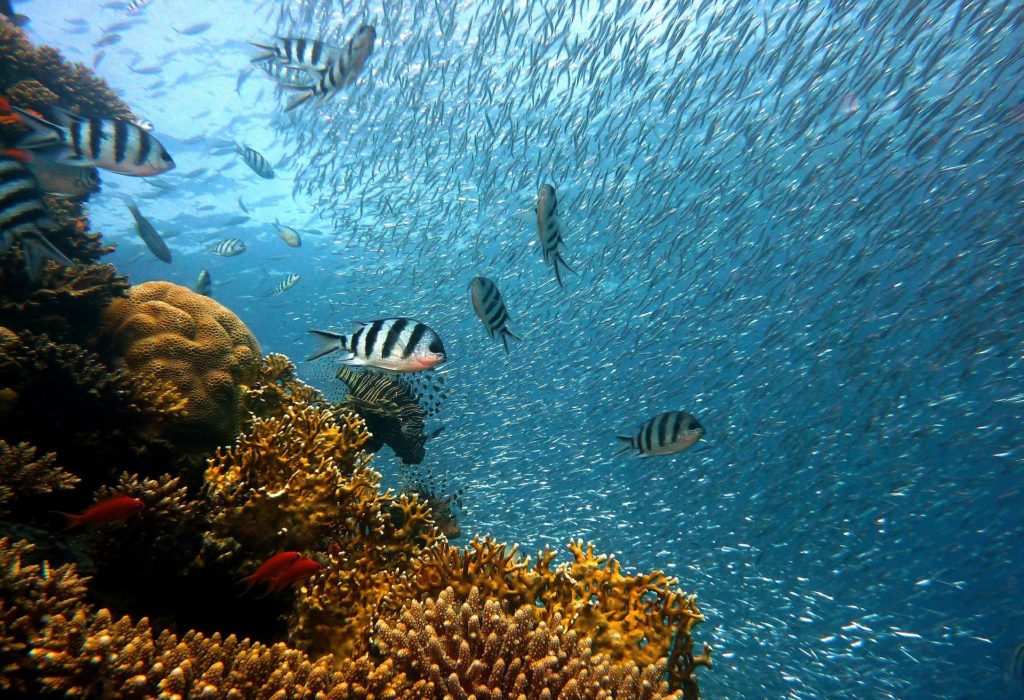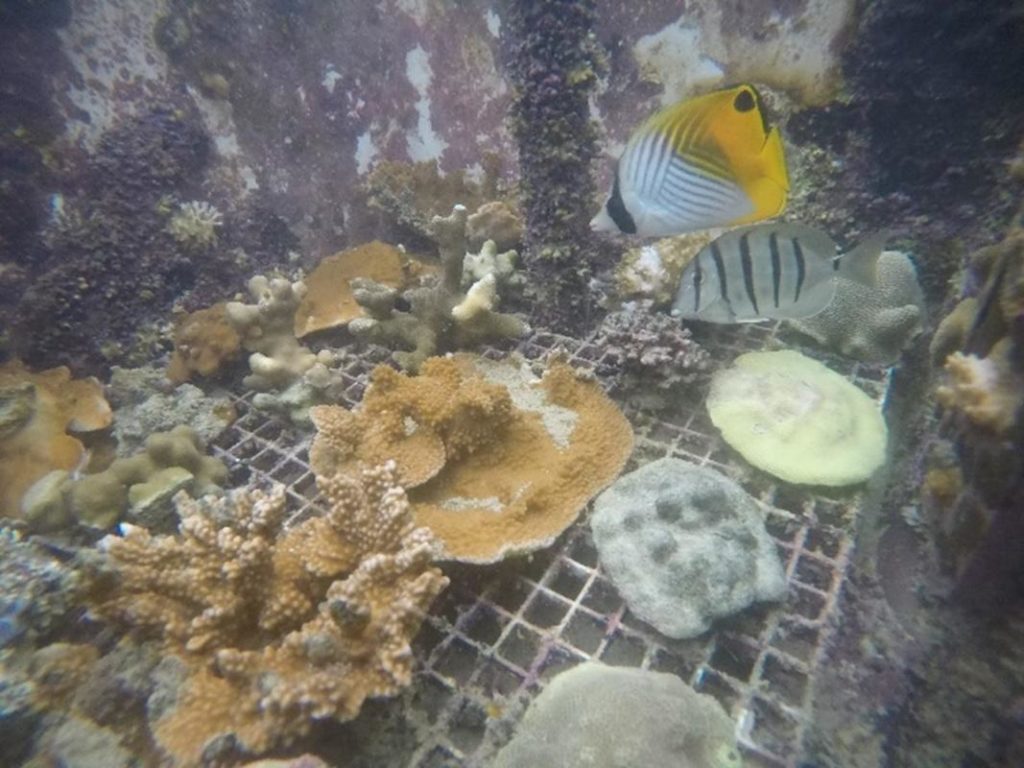
Different types of marine life in Hawaii, such as several reef fish species and corals, are showing resilience to rising ocean acidity.
- Several reef fish species are evolving to adapt to increasing ocean acidification. (more…)
- Some coral species in Hawaii are showing resilience to ocean acidification and warming. (more…)
Background Information: Ocean Acidification Infographic
Full Report: Certain Fish Species Are Rapidly Evolving to Adapt With Ocean Acidification; Hawaiian corals show surprising resilience to warming oceans
Several Reef Fish Species Are Adapting to Ocean Acidification
A recent study suggests that some fish species may be able to adapt to ocean acidification by developing more flexible features. Here’s what you need to know about it:
- The study focused on six common reef fishes to see how they respond to ocean acidification. They included factors such as the frequency of their activities and their parental care.
- In Papua New Guinea, six adult coral reef fish species were studied for their cellular reactions to high CO2 levels in their brains after being exposed to various amounts of greenhouse gases.
- The results of the study revealed that the elevated CO2 levels in the fish’s brains affected their immune systems and circadian rhythms, which play a huge role in the fish’s metabolism and sleep patterns.
- When exposed to elevated CO2, the circadian genes triggered changes in other genes in the brain, allowing the fish to adapt to increasing ocean acidification.
- The researchers also revealed that the immune system’s reaction to high CO2 levels was a critical component of reef fish adaptation to ocean acidification. It was remarkable, however, that certain nocturnal species’ immunity genes enhanced when exposed to CO2, whereas other species’ immunity genes were dominated by high CO2 levels.
Several Coral Species in Hawaii Are Showing Resilience Against Ocean Acidification
A new study shows new hope regarding the ability of Hawaiian coral species to cope with ocean acidification and ocean warming. Here’s all you need to know about the study:
- Longer than most of its comparable studies, This research spanned 22 months. It started with the collection of samples from three Hawaiian coral species, such as Montipora capitata, Porites compressa, and Porites lobata.
- The coral samples were placed in different tanks that replicated the natural conditions of coral reefs. These tanks allow the scientists to observe the varying temperatures and pH levels during different times of the day.
- These tanks contained four different conditions, including:
- Tank with current ocean condition
- Tank with an ocean acidification condition
- Tank with an ocean warming condition
- Tank with both ocean acidification and warming conditions
- Researchers discovered that some coral species died after being subjected to conditions that simulated ocean temperatures and acidity levels. However, not all of the coral species studied died, In fact, some of them were still alive and even flourishing after the experiment.
- Over the duration of the study, the Porites compressa and Porites lobata show more resiliency than Montipora capitata.
- The results of the study revealed that the Porites species exhibited resilience to acidification and warming. These corals can play a critical role in the redevelopment of coral reefs during climate change since these species are one of the most common around the world.

(Source: © Rowan McLachlan/Ohio State News)
Sources:
“Certain Fish Species Are Rapidly Evolving to Adapt With Ocean Acidification” Nature World News, March 04, 2022
“Hawaiian corals show surprising resilience to warming oceans” Science Daily, March 10, 2022
https://www.sciencedaily.com/releases/2022/03/220310115150.htm